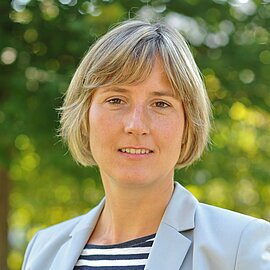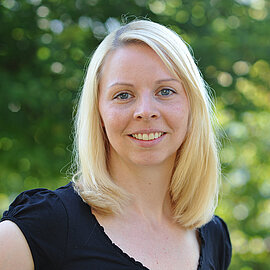On 14 November 2017 the German-Ukrainian Agricultural Policy Dialogue (APD) hosted a discussion event at the Agritechnica in Hanover, in co-operation with the German Agribusiness Alliance of the Committee on Eastern European Economic Relations (OA), the German Agricultural Society (DLG e.V.) and the Leibniz Institute of Agricultural Development in Transition Economies (IAMO). Topic of the discussion was “Potentials in Ukrainian agriculture – Visions for the Ukrainian agribusiness”. The panel discussion debated German and Ukrainian representatives from the world of politics, associations, the agricultural industry and academia address the development prospects of the Ukrainian agricultural and food sector. In addition, the new Ukrainian umbrella organisation National Ukrainian Agrarian Forum presented its visions of how potential can be exploited.
The Parliamentary State Secretary at the Federal Ministry for Food and Agriculture (BMEL), Peter Bleser, referred to the production potential of the Ukraine, which still has scope for further enhancement. Olga Trofimzewa, Deputy Minister of Agrarian Policy and Food of Ukraine, emphasised aspects such as the significance of a diversified sectoral export strategy, which should focus in particular on increasing the share of premium, processed products or agricultural technology exports. Mariia Didukh presented the newly-founded National Ukrainian Agrarian Forum, which is made up of five large agricultural associations in the Ukraine. In addition to increasing productivity and improving product quality and safety, the Director of the association also identified the development of new sales markets, improving the reputation of the Ukrainian agricultural sector and supporting Ukrainian-made products as important sectoral development goals. Werner Hilse, Vice President of the German Farmers’ Association, pointed out a number of challenges, such as establishing climate-friendly production and the increasing discrepancy between the demands of society and the reality of agricultural production. He highlighted interaction with social stakeholders as a key element of the work of his association.
In the panel discussion that followed Taras Vysotskyi, Director General of the Ukrainian Agribusiness Club, and Pawel Koval of the Ukrainian Agricultural Confederation pointed out that institutional obstacles in particular need to be overcome to ensure the successful further development of the sector and the safeguarding of long-term investment. The dialogue between the various stakeholders is of major significance in this respect. Dirk Stratmann, the Ukrainian spokesman of the German Agribusiness Alliance, highlighted the importance of budget security as a key success factor for the initial phase of the newly-formed umbrella association. In addition, he also recommended acknowledging the heterogeneity of the market participants with different working areas. Philipp Schulze-Esking, Vice President of DLG e.V., emphasised the potential of an umbrella association for the bundling and communication of interests. IAMO Director Alfons Balmann pointed out that, with regard to operational productivity reserves, productivity increases are not automatically accompanied by increased profitability. Particular challenges for the sector and therefore also starting points for further association work include the recruitment of qualified personnel and the development of IT structures suitable for a knowledge-intensive agricultural sector.
Text: 3,638 characters (incl. spaces)
| Press Release 09/2017
Potential and visions in Ukrainian agriculture
Discussion event at the Agritechnica 2017 in Hanover

About IAMO
The Leibniz Institute of Agricultural Development in Transition Economies (IAMO) analyses economic, social and political processes of change in the agricultural and food sector, and in rural areas. The geographic focus covers the enlarging EU, transition regions of Central, Eastern and South Eastern Europe, as well as Central and Eastern Asia. IAMO works to enhance the understanding of institutional, structural and technological changes. Moreover, IAMO studies the resulting impacts on the agricultural and food sector as well as the living conditions of rural populations. The outcomes of our work are used to derive and analyse strategies and options for enterprises, agricultural markets and politics. Since its founding in 1994, IAMO has been part of the Leibniz Association, a German community of independent research institutes.
Leibniz Institute of Agricultural Development in Transition Economies (IAMO)
Theodor-Lieser-Str. 2
06120 Halle (Saale)
Germany
www.iamo.de/en
IAMO on Facebook: www.facebook.com/iamoLeibniz
IAMO on Twitter: https://twitter.com/iamoLeibniz
Contact

Dr. Franziska Schaft
Deputy Head of Department Structural Change
Scientific coordinator IAMO Graduate School
Room: 137
